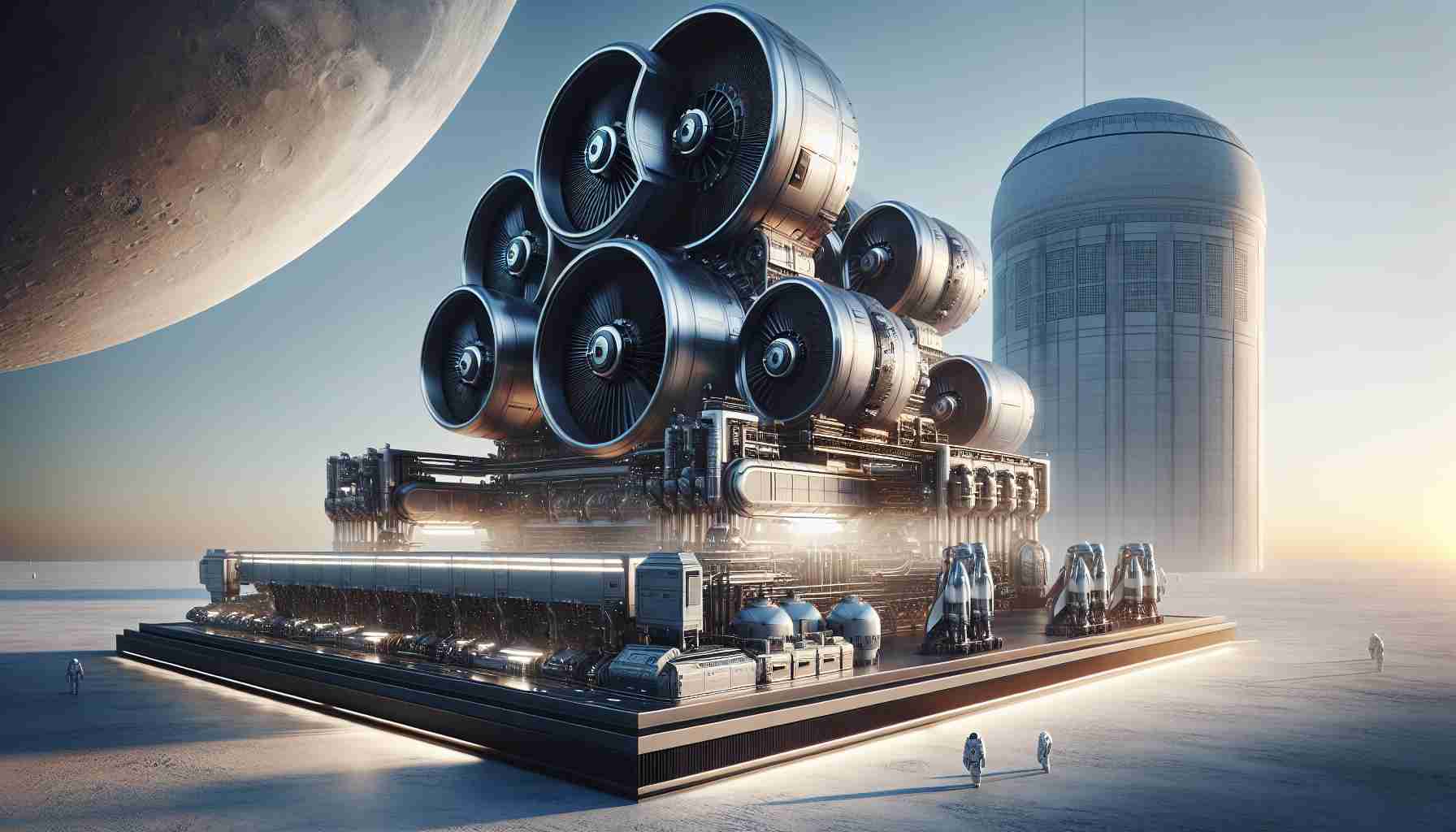Innovating Space Travel
The Indian Space Research Organisation (Isro) has reached a remarkable new frontier in space technology. On January 17, a landmark test was conducted at the Isro Propulsion Complex in Tamil Nadu, showcasing the capability of the Vikas liquid engine to start again after being halted.
This engine has proven to be a fundamental element in Isro’s launch vehicles, and the latest achievement aims to refine its ability for potential recovery and reusability. Such advancements are crucial as Isro sets its sights on the future of space exploration.
In this recent test, the Vikas engine operated flawlessly for a full 60 seconds before going silent for 120 seconds. It then reignited successfully for an additional seven seconds. Isro confirmed that all parameters during the test remained stable, meeting the desired outcomes consistently.
This test illustrates a significant progression, following a similar successful demonstration in December 2024, where the engine was restarted after a shut-off period of 42 seconds. Isro’s ambitious plan includes conducting more tests in the upcoming days, focusing on fine-tuning the engine’s performance. These efforts aim to unlock the potential for fully reusable launch vehicles, marking a notable evolution in space travel technology.
Societal and Economic Implications of Advancements in Space Travel
The recent achievements of the Indian Space Research Organisation (Isro) represent more than a technological marvel; they are pivotal to the future of space exploration and its broader societal implications. As nations invest in advanced aerospace technologies, the potential for collaboration in international scientific research grows. This could foster global partnerships in addressing pressing issues such as climate change, through satellite data sharing and tracking environmental changes from space.
The evolution of reusable launch vehicles will likely stimulate competition among space-faring nations and private companies, altering the economics of space travel. Reduced costs associated with reusability could make space more accessible not just for national agencies, but for private enterprises and startups as well. The global space economy is projected to reach $1 trillion by the next decade, indicating significant investment opportunities and innovations in sectors like telecommunications, agriculture, and disaster management.
Moreover, the environmental consequences of launching rockets into space warrant serious consideration. Increased frequency of launches, if not managed sustainably, could lead to atmospheric pollution and exacerbate space debris issues. Thus, the push towards reusable technologies may play a critical role in mitigating these risks.
In conclusion, Isro’s milestones in space propulsion technology herald a future intertwined with economic opportunities, international collaboration, and environmental responsibilities, shaping not just our understanding of space, but our place within it.
Isro’s Game-Changing Vikas Engine Testing: What You Need to Know!
The Evolution of Space Travel: Isro’s Recent Breakthrough
The Indian Space Research Organisation (Isro) continues to push the boundaries of space technology with its groundbreaking innovations. On January 17, Isro successfully executed a significant test for the Vikas liquid engine at the Isro Propulsion Complex in Tamil Nadu. This isn’t just any test; it marks a critical step towards enhancing the recovery and reusability of launch vehicles, aiming to redefine space exploration in the coming years.
Key Features of the Vikas Engine
1. Fuel Efficiency: The Vikas engine demonstrates high fuel efficiency, which is essential for long-duration missions.
2. Proven Performance: With a history of successful launches, the Vikas engine is a reliable choice for Isro’s missions.
3. Reusability Potential: The recent test is crucial in demonstrating the engine’s ability to restart after cessation, paving the way for reusable launch technologies.
How Was the Test Conducted?
The test involved the Vikas engine running for a complete 60 seconds, pausing for 120 seconds, then successfully reigniting for an additional seven seconds. This operation validated Isro’s objectives by maintaining all critical parameters within stable ranges throughout the test period.
Use Cases and Applications
– Satellite Launches: The Vikas engine is primarily used for placing satellites into orbit, an essential function as demand for satellite services grows.
– Interplanetary Missions: With advancements in engine technology, Isro can contemplate more complex missions, possibly targeting Mars and beyond.
Pros and Cons of Isro’s Vikas Engine Innovations
Pros:
– Enhances the possibility of cost-effective space missions through reusability.
– Increases operational efficiency with reliable performance over multiple flights.
– Contributes to India’s position as a leader in space exploration.
Cons:
– The initial investment for developing reusable technology can be high.
– Potential technical challenges in ensuring consistent performance across multiple uses.
Market Trends in Space Technology
As the global space industry evolves, there is a marked trend toward reusability in launch technologies. Companies like SpaceX have led the charge, prompting other organizations, including Isro, to adopt similar methodologies. The potential for reusable launch vehicles aligns perfectly with the industry’s trajectory towards lowering costs and increasing access to space.
Innovations on the Horizon
Looking ahead, Isro plans to conduct more tests to refine the Vikas engine further. This strategic approach not only focuses on improving the engine’s capabilities but also aligns with their broader goal of making space travel more accessible and sustainable.
Security Aspects
In modern space exploration, ensuring cybersecurity for mission-critical technologies is imperative. Isro is expected to prioritize securing its data and technologies against potential cyber threats as it moves toward advanced recovery and reusability systems.
Conclusion
Isro’s advancements with the Vikas liquid engine demonstrate significant progress in the quest for reusable launch vehicles. As space exploration continues to thrive globally, Isro’s innovations signify a promising future for India’s role in this new era of space travel.
For more information about Isro’s pioneering efforts in space technology, visit Isro’s official site.














